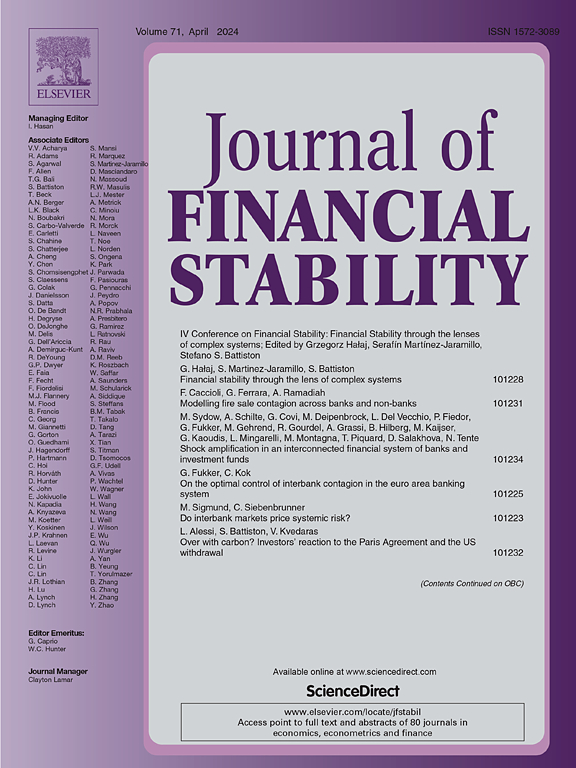非大股东不满与公司绩效波动:群体思维视角
IF 4.2
2区 经济学
Q1 BUSINESS, FINANCE
引用次数: 0
摘要
社会心理学研究表明,受到较大外部压力的管理群体更容易产生群体思维(即倾向于过早达成共识),从而导致更大的绩效波动。为了隔离群体动态渠道,我们将重点放在管理层面临的压力上,这些压力来自大部分不知情和不满意的非大股东。与群体思维观点一致,我们发现非大股东不满与绩效波动呈正相关,这进一步得到了解决遗漏变量偏差和反向因果关系的测试的证实。此外,在董事之间互动更多、首席执行官权力更大、董事会多元化程度更低的公司中,这种基线关系更强。我们的研究结果表明,非大股东的不满会加剧群体思维,从而加剧绩效波动。本文章由计算机程序翻译,如有差异,请以英文原文为准。
Non-blockholder dissatisfaction and firm performance volatility: A groupthink perspective
Social psychology research suggests that management groups under greater external pressure are more prone to groupthink (i.e., a tendency to reach premature consensus), leading to greater performance volatility. To isolate the group dynamics channel, we focus on the pressure management faces from largely uninformed and dissatisfied non-blockholders. Consistent with the groupthink view, we find that non-blockholder dissatisfaction is positively associated with performance volatility, which is further corroborated by tests addressing omitted variable bias and reverse causality. In addition, the baseline relationship is stronger in firms with greater interaction among directors, more powerful CEOs, and less diverse boards. Our findings suggest that non-blockholder dissatisfaction heightens performance volatility by exacerbating groupthink.
求助全文
通过发布文献求助,成功后即可免费获取论文全文。
去求助
来源期刊

Journal of Financial Stability
Multiple-
CiteScore
7.70
自引率
9.30%
发文量
78
审稿时长
34 days
期刊介绍:
The Journal of Financial Stability provides an international forum for rigorous theoretical and empirical macro and micro economic and financial analysis of the causes, management, resolution and preventions of financial crises, including banking, securities market, payments and currency crises. The primary focus is on applied research that would be useful in affecting public policy with respect to financial stability. Thus, the Journal seeks to promote interaction among researchers, policy-makers and practitioners to identify potential risks to financial stability and develop means for preventing, mitigating or managing these risks both within and across countries.
 求助内容:
求助内容: 应助结果提醒方式:
应助结果提醒方式:


